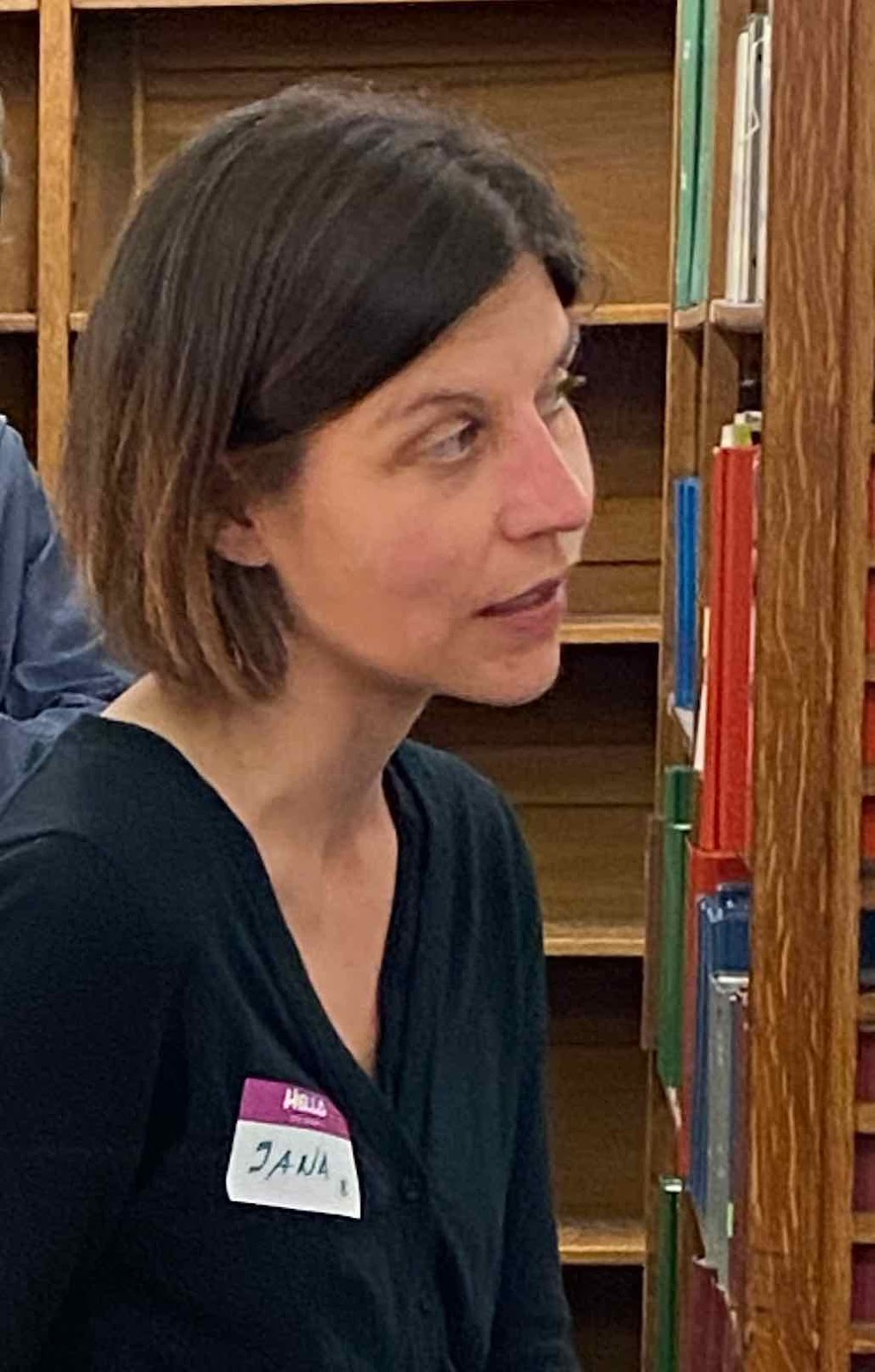Hannah Arendt’s On Revolution is the book people come to later, after reading The Origins of Totalitarianism and Eichmann in Jerusalem. On Revolution explains why modern political movements, even well-intentioned ones, so often collapse into chaos, violence, or empty spectacle. Why nearly all revolutions begin with a cry for freedom and end under tyranny. Roger Berkowitz, founder and academic director of the Hannah Arendt Center at Bard College, has called On Revolution Arendt’s most important work for our time.
I didn't read On Revolution to learn about 18th-century history, but that aspect fascinated me the most from my first (of three) readings. I read the book to understand why most revolutions fail. Why do today's movements and “moments” of rising against tyranny today feel simultaneously urgent and powerless—why they generate outrage and mobilization but fail to produce lasting freedom.
Arendt’s central claim: "most modern revolutions confuse liberation with freedom, and the confusion destroys them."
Liberation is not freedom
Liberation means being freed from something—tyranny, poverty, occupation, oppression. Freedom, in Arendt’s sense, means the ability to "act politically with others in a durable public space." It means founding something that lasts: institutions, laws, assemblies, and a shared world where people appear to one another as equals.
The American Revolution, she argues, succeeded because it understood this difference. The French Revolution (and the Russian Revolution) failed because it didn’t.
The American founders, to their eternal credit and our benefit, were obsessed with founding. They fought to write constitutions and found legislatures, courts, and lasting programs. They worried less about the social questions such poverty, hunger, and inequality and more about how to build a political structure that could outlast them. They created a space for citizens to act together across generations.
The French revolutionaries, by contrast, became consumed by suffering. Once “the people” were redefined as the hungry masses, politics was no longer about public freedom—it became a moral crusade to eliminate misery. And misery, Arendt insists, has no natural limit. Once the revolution defines itself by alleviating suffering, it must keep escalating, because suffering is endless. That is how revolutions devour themselves.
In Arendt’s formulation, compassion is a terrible political guide.
Not because suffering isn’t real—but because it can’t be organized into stable institutions. You can relieve hunger. You cannot found freedom on pity.
Why revolutions radicalize
This is where On Revolution becomes eerily contemporary.
Arendt shows how revolutions tend to slide from political action into moral absolutism. Once a movement defines itself as the voice of “the people,” anyone who disagrees becomes an enemy of humanity itself. Violence becomes justified. Due process evaporates. The revolution must keep purifying itself to remain “true.”
That logic did not die in 1794. It is alive in every movement that substitutes "moral righteousness for political construction."
Arendt is not saying people shouldn’t care about injustice. She is saying that "you cannot build a republic out of rage, resentment, or suffering alone." Those are forces of destruction, not creation.
What the American founders understood—better than almost anyone before or since—is that politics is not primarily about justice in the abstract. It is about "creating a space where people can argue, act, compromise, and govern themselves without killing each other."
That space is fragile. It must be designed, protected, and institutionalized. Once it disappears, no amount of moral fervor can replace it.
The lost tradition of councils
One of the most fascinating parts of On Revolution is Arendt’s recovery of what she calls the “council tradition.” In almost every major revolution—American town halls, French sections, Russian soviets, Hungarian workers’ councils—ordinary people spontaneously create local bodies to govern themselves. These are moments of genuine political freedom: people speaking, voting, deliberating, acting together.
And then, almost without fail, (except in America) these councils are crushed—by parties, bureaucracies, or charismatic leaders.
Why? Because councils represent horizontal power, while modern politics is obsessed with vertical power: seizing the state, controlling the apparatus, winning elections, commanding the police and military. The councils threaten elites of every ideology because they distribute power too widely.
Arendt believed the greatest tragedy of modern revolutions is not that they fail—it’s that they destroy their own most democratic institutions in the process of “winning.”
That insight alone makes On Revolution worth reading in the 21st century.
Why Berkowitz is right
When Berkowitz calls this Arendt’s most important book for our time, he is pointing to something uncomfortable: we live in an age of permanent political agitation with very little political creation.
Everywhere you look, people are mobilized. Very few are building. Social media creates movements without institutions. Outrage without constitutions. Protests without durable structures. Everyone feels morally outraged; almost no one is founding anything that can last.
Arendt would recognize this instantly. She would say we are drowning in liberation movements that cannot produce freedom. We are very good at tearing down. We are terrible at building a shared world.
On Revolution is not a book you read once and “get.” It is deeply critical of the modern left and deeply skeptical of the modern right. It admires the American founding while being merciless about its blind spots. It honors revolutionary courage while condemning revolutionary excess. And it is written with Arendt’s characteristic clarity: sentences that are lucid and full of insight, but often complex.
[An aside: I shared my enthusiasm for Arendt with a friend who is an Arendt skeptic. There are a lot of Arendt critics who dislike her conclusions in Eichmann in Jerusalem. I had the book with me when we met for coffee. My friend opened the book randomly to the opening sentence of chapter 3, read it aloud and said, "What does that mean." It was 82 words with three dependent clauses. I stammered "I'll get back to you."]
------
The hardest thing On Revolution asks us to accept is this: Freedom is boring.
Not in lived experience—but in structure. Freedom requires procedures, rules, institutions, compromise, and limits. It requires people to lose elections and accept it. It requires citizens to live with people they dislike. It requires slow, frustrating, incremental change. It requires grace. And as Arendt says explicitly, it requires forgiveness.
Revolutionary passion, by contrast, feels alive. It feels pure. It feels righteous. And it burns itself out.
Arendt understood that if you want a society where people can keep acting together, you must give up the dream of moral perfection. You must choose a flawed, procedural, human republic over the intoxicating fantasy of total justice. That's why the woke left felt so wrong with its on line banishing of people. When the Trump right silences critics with death threats they are no better than the left.
In an age of endless crisis and constant mobilization, Hannah Arendt’s message is quietly radical: the goal is not to feel righteous—it is to build a world where freedom can endure.
You see it on both ends of the spectrum. One side tries to discredit elections, the other to delegitimize speech and process. Different flags, same impulse: “If you disagree, you don’t belong.” That’s exactly the move Arendt warned about—the moment when “the people” becomes a moral category rather than a political one.
The tragedy is that Americans are still surrounded by the very tools Arendt thought precious—local institutions, courts, assemblies, constitutional processes—but more and more activists treat those tools as corrupt by definition. They want purity, not procedures. That’s the road that leads away from freedom, even when it’s paved with good intentions.
Sadly, On Revolution predicts nothing good in the current situation in Iran. The Jihadis that run the country have already murdered thousands. They could murder tens or hundreds of thousands and believe they are doing God's will. And if the mullahs fall whatever follows them will be more interested in power than freedom.



































